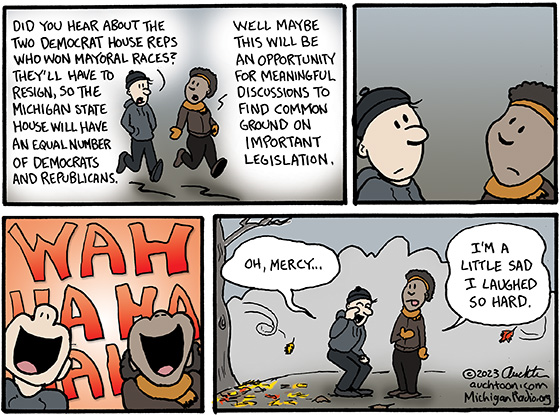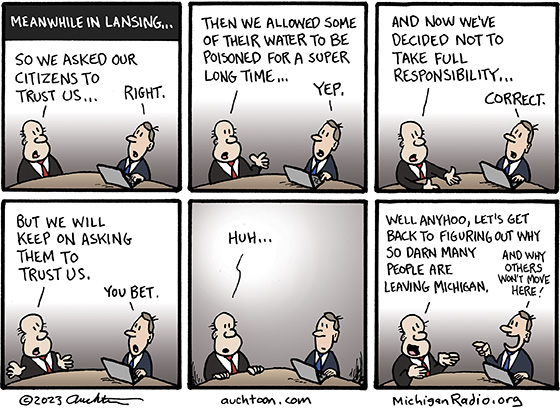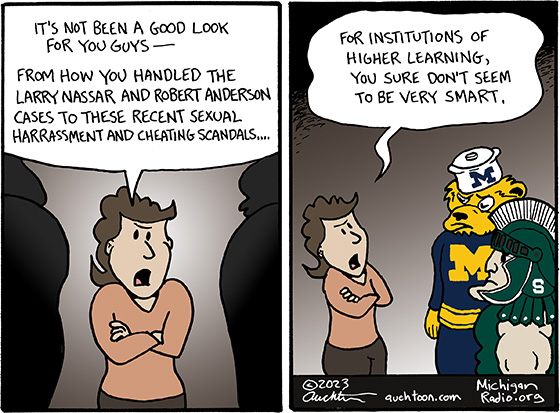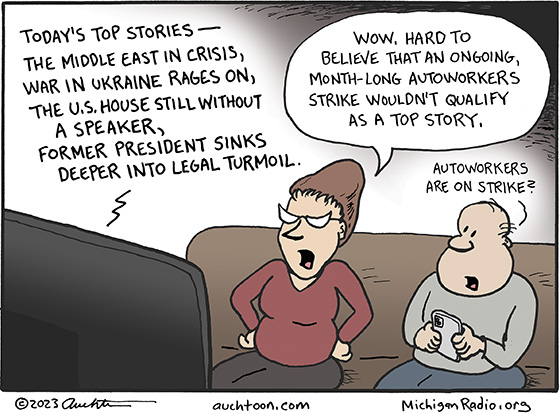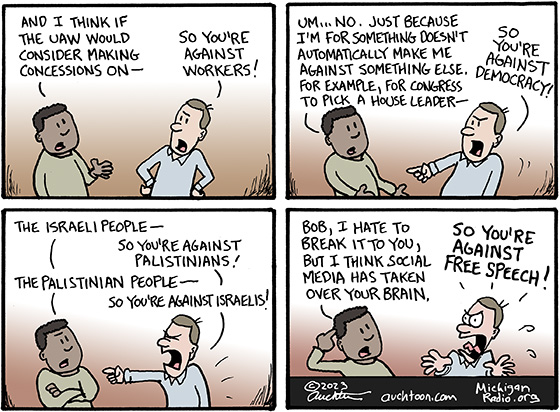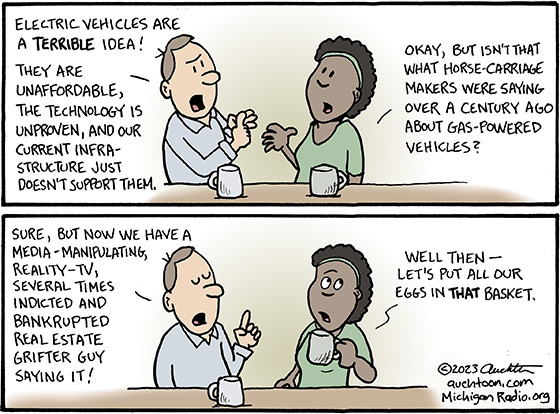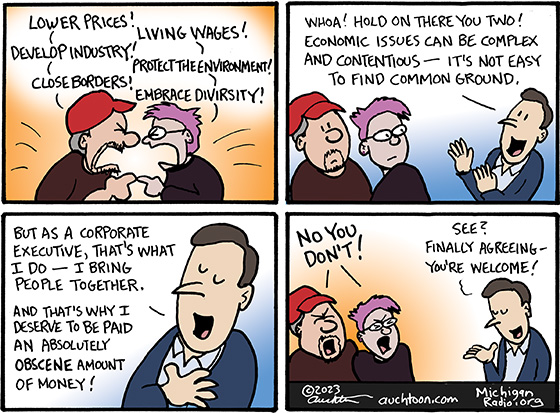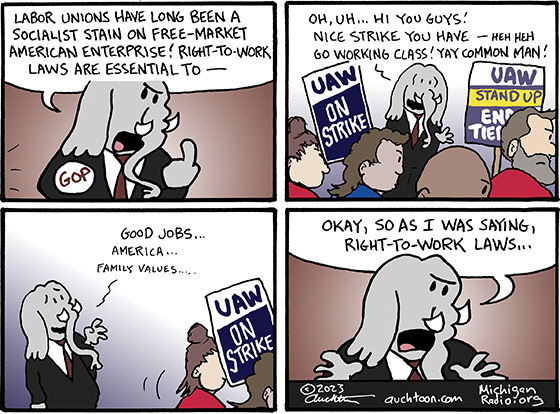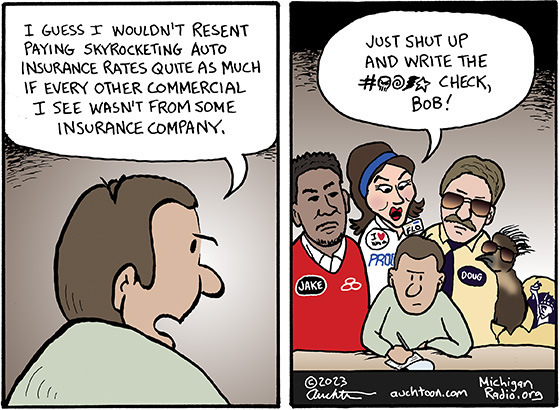The Single Greatest Tragedy of Our Time
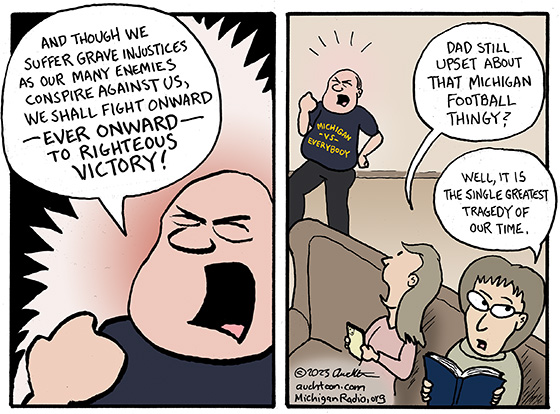
College football is important. Seriously. It’s an industry of significant size that supports the livelihoods of a great many people — not just coaches and players, but support staff, media, local merchants, entire communities. It provides entertainment (even identity) for millions of people. It is legitimately important. (Just not all that important.)
As a fan, I, too, was taken aback last week when Big Ten officials summarily suspended Michigan coach Jim Harbaugh for the final three games of the regular season as punishment for the ongoing alleged sign stealing scandal. Was it poorly handled? Sure. Was it unfair? Seemingly. Was it the worst injustice ever in the history of injustices? No. But the overwrought reactions of coach Harbaugh, Michigan’s Board of Regents, and the legions of Wolverine fans would have you think it was.
